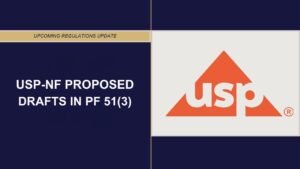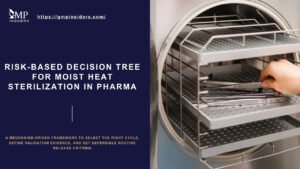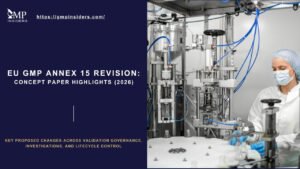Table of Contents
The U.S. Food and Drug Administration (FDA) has issued a warning letter to LS Promotions Inc., located in Ronkonkoma, NY, following an inspection of the facility from April 24 to May 2, 2024. The inspection revealed significant violations of Current Good Manufacturing Practice (cGMP) regulations, which have resulted in the company’s drug products being deemed adulterated under the Federal Food, Drug, and Cosmetic Act (FD&C Act).
Key Non-Conformances Identified
Some of the non-conformances identified during this FDA inspection include:
1. Inadequate Laboratory Testing of Drug Products
LS Promotions Inc. failed to conduct appropriate laboratory testing to verify the identity and strength of active ingredients in each batch of drug products prior to their release.
This includes inadequate microbiological testing, particularly for products like SPF 15 lip balm, SPF 30 sunscreen, and hand sanitizer. The lack of proper testing means that the company cannot confirm whether its products meet the necessary quality standards for consumer safety.
2. Deficient Stability Testing Program
The company’s stability testing program was found to be inadequate. LS Promotions Inc. did not have sufficient stability data to ensure that their drug products maintain their chemical and microbiological integrity throughout their shelf-life.
The practice of applying expiration dates based solely on supplier-provided dates, without supporting data from stability studies, is particularly concerning for products such as liquid formulations, which are more prone to degradation.
3. Lack of Process Validation and Equipment Qualification
The inspection also highlighted the company’s failure to validate its manufacturing processes and to qualify its manufacturing equipment.
SEE ALSO: Qualification vs Validation in GMP
Additionally, the company did not perform studies to establish bulk hold times or validate the effectiveness of cleaning procedures for equipment used across multiple products. This raises significant concerns about the consistency and safety of the products being manufactured.
4. Inadequate Quality Control Unit Oversight
The quality control unit (QU) at LS Promotions Inc. did not fulfill its responsibilities to ensure that drug products meet cGMP requirements.
RELATED: GMP vs cGMP
The QU failed to establish adequate procedures, did not verify the identity of each component used in drug products, and lacked strict controls over labeling operations. This lack of oversight further compromised the quality and safety of the products.
Recommended CAPA Plan
To address these critical deficiencies, LS Promotions Inc. must implement a comprehensive Corrective and Preventive Action (CAPA) plan. Below are the recommended actions for each non-conformance:
1. Addressing Inadequate Laboratory Testing
Root Cause Analysis: Investigate the root causes of the failure to conduct adequate laboratory testing for identity, strength, and microbiological integrity of drug products.
Corrective Measures: Implement robust testing protocols for all drug products, including chemical and microbiological tests. Ensure that each batch undergoes full testing before release.
Preventive Actions: Establish a routine audit process to ensure ongoing compliance with testing protocols. Train all laboratory staff on the updated testing requirements and ensure that testing equipment is calibrated and maintained regularly.
2. Enhancing the Stability Testing Program
Root Cause Analysis: Review the current stability testing program to identify gaps, particularly regarding the stability of liquid formulations and manipulated products.
Corrective Measures: Conduct comprehensive stability studies for all drug products in their final container-closure systems. Develop and validate stability-indicating methods to ensure that products remain within specification throughout their shelf-life.
Preventive Actions: Implement an ongoing stability testing program where representative batches are tested annually to confirm the validity of shelf-life claims. Regularly review and update the stability testing procedures.
3. Validating Manufacturing Processes and Equipment
Root Cause Analysis: Identify the reasons for the lack of process validation and equipment qualification, focusing on gaps in current procedures and oversight.
Corrective Measures: Perform full process validation studies for all manufacturing processes, including the establishment of bulk hold times and validation of cleaning procedures. Qualify all manufacturing equipment to ensure it operates within required specifications.
Preventive Actions: Develop and implement a validation master plan that includes process performance qualification (PPQ) and continuous monitoring of manufacturing processes. Establish a change management system to ensure that any modifications to processes or equipment are properly validated before implementation.
4. Strengthening Quality Control Unit Oversight
Root Cause Analysis: Assess the deficiencies in the QU’s oversight and the inadequacies in established procedures.
Corrective Measures: Revise the QU procedures to include detailed responsibilities for ensuring compliance with cGMP. Implement strict controls for verifying the identity of components and managing labeling operations.
Preventive Actions: Provide additional resources and authority to the QU to enforce compliance across all operations. Conduct regular reviews of QU activities and performance to ensure that the unit effectively fulfills its responsibilities.
Timeline for Implementation
Our recommendations for Implementation of the CAPA Plan include:
Immediate Actions (0-3 months)
- Conduct root cause analyses for each identified non-conformance.
- Begin immediate corrective actions, including the implementation of enhanced testing protocols and revisions to QU procedures.
- Initiate comprehensive stability studies and process validation activities.
Short-Term Actions (3-6 months)
- Complete process validation studies and qualification of all equipment.
- Fully implement the revised stability testing program and establish ongoing monitoring.
- Conduct initial audits of the testing and validation processes to ensure compliance.
Long-Term Actions (6-12 months)
- Continue to monitor the effectiveness of the CAPA plan and make adjustments as necessary.
- Establish regular training and audit programs to maintain compliance with cGMP.
- Prepare for a potential re-inspection by the FDA to verify the effectiveness of corrective actions and compliance.
Conclusion
LS Promotions Inc. must address these significant violations promptly and thoroughly. Failure to address the warning letter may result in regulatory actions, including the seizure of products, injunctions, withholding of Export Certificates, and delays in the approval of new drug applications.
By implementing a robust CAPA plan and ensuring ongoing compliance with cGMP, LS Promotions Inc. can restore the integrity of its manufacturing processes and safeguard the quality of its drug products.















